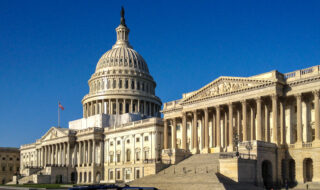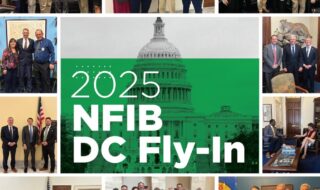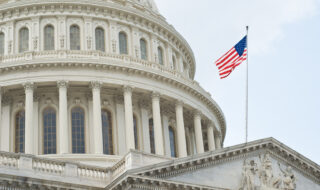What State Gets from Extending the Small Business Deduction
What State Gets from Extending the Small Business Deduction
September 16, 2024
What State Gets from Extending the Small Business Deduction
Reports highlight how Washington benefits if Section 199A of the tax code is made permanent
FOR IMMEDIATE RELEASE
Contact: Patrick Connor, Washington State Director, patrick.connor@nfib.org
or Tony Malandra, Senior Media Manager, anthony.malandra@nfib.org
OLYMPIA, Wash., Sept. 16, 2024—The Washington state numbers in one report released last Thursday astound with their economic potential, a potential that will go unrealized if Congress lets the 20% Small Business Deduction in the federal tax code expire next year.
“For some, preventing the 20% Small Business Deduction in the federal tax code from expiring next year is a simple matter of fairness,” said Patrick Connor, state director for NFIB in Washington. “The same law that created it made the breaks big corporations received permanent. But fairness aside, last week’s release of two reports delving deeper into the issue showed how state economies can benefit if the deduction is preserved.”
The reports, the 2024 NFIB Tax Survey and EY’s Macroeconomic impacts of permanently extending the Section 199A deduction on small businesses, show the importance to all states’ economies of keeping the 20% Small Business Deduction element of the 2017 Tax Cuts and Jobs Act (TCJA) in place.
According to EY, “The tax change is estimated to increase US job equivalents at small businesses by approximately 1.2 million jobs, on average, in each of the first ten years and growing over time to 2.4 million each year after that.” On the gross domestic product, “permanently extending the Section 199A deduction is estimated to increase US GDP at small businesses by $75 billion annually, over the first 10 years; and growing over time to $150 billion annually each year thereafter.”
The Washington share of those two calculations (Page 7, Page 9) are 30,000 jobs and $1.8 billion in GDP each year for the first 10 years and 57,000 jobs $3.8 billion each year after 2035.
NFIB’s Tax Survey found that should Small Business Deduction expire, 61% plan to raise prices, 44% will postpone or cancel capital investments, 36% will postpone or cancel hiring additional employees, 16% will freeze wages or reduce employee benefits, 10% will become more productive , more efficient, and the remaining would take a variety of other actions. (Page 7)
Also last Thursday, Jeff Brabant, NFIB’s vice president of Federal Government Relations, testified before the Senate Committee on Finance, concluding his remarks with, “Members of Congress should ask themselves if they really believe it when they say, ‘small businesses are the backbone of America.’ If they truly believe that statement and value small businesses in their communities, then making the 20% small business deduction permanent should be an easy decision.”
The typical NFIB member employs between one and nine people and reports gross sales of about $500,000 a year. NFIB’s latest Small Business Economic Trends report can be read here and its latest Jobs Report here.
Keep up with the latest Washington small-business news at nfib.ua.verbinteractive.com/WA. Follow us on X at @NFIB_WA and on Facebook https://www.facebook.com/NFIB.WA.
###
For 80 years, NFIB has been advocating on behalf of America’s small and independent business owners, both in Washington, D.C., and in all 50 state capitals. NFIB is a nonprofit, nonpartisan, and member-driven association. Since our founding in 1943, NFIB has been exclusively dedicated to small and independent businesses and remains so today. For more information, please visit nfib.com.
NFIB Washington
111 – 21st Avenue Southwest
Olympia, WA 98501
360-786-8675
NFIB.com/WA
Twitter: @NFIB_WA
NFIB is a member-driven organization advocating on behalf of small and independent businesses nationwide.
Related Articles













